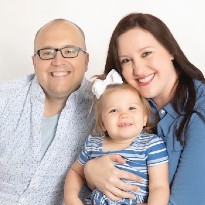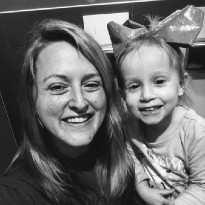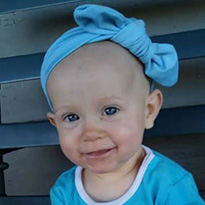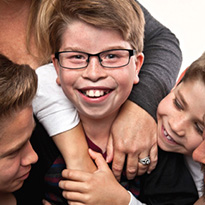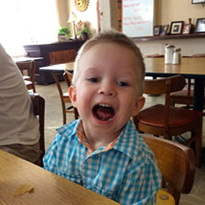CDH occurs when there is an opening in the diaphragm, the muscle that separates the organs in the abdomen from the organs in the chest. The abnormal development of the diaphragm, occurring before birth, causes a hole in this muscle that helps control breathing and is linked to the development of the lungs. CDH may range from a small hole, or hernia, to the complete lack of the diaphragm.


As a result of an absent or partially formed fetal diaphragm, the abdominal organs (stomach, intestines, liver, spleen, kidneys) move into the chest opening during pregnancy and crowd the baby’s heart and lungs. This can lead to compression and underdevelopment of the lungs (pulmonary hypoplasia), and potentially life-threatening breathing difficulties after birth. While most infants with CDH improve following surgery, some may have challenges with other organs (brain, intestines, etc) and some children need additional surgery (feeding tube, bowel blockage, hernia recurrence, etc). Fortunately, these challenges and complications are almost always repairable. Moreover, almost every affected system is inside the body – the child’s face and external body are typically normal.
Children’s Memorial Hermann Hospital and affiliated physicians provide families with a continuum of care and resources for their child’s health care needs from fetal diagnosis, through infancy, childhood and into adulthood.
Adults living with CDH
At Memorial Hermann, in collaboration with our affiliated providers, we play a crucial role in addressing the underserved needs of adults who have lived with CDH since childhood. Learn more about our approach to care for adults living with CDH.
Learn more information about care for adults with CDH »


 Home to one of the most comprehensive CDH programs in the United States, Children’s Memorial Hermann Hospital combines expertise to provide optimal care for families beginning at prenatal diagnosis through delivery, postnatal care and long-term follow-up. Nurses and affiliated physicians work in concert to provide the highest level of care across all specialty units, including:
Home to one of the most comprehensive CDH programs in the United States, Children’s Memorial Hermann Hospital combines expertise to provide optimal care for families beginning at prenatal diagnosis through delivery, postnatal care and long-term follow-up. Nurses and affiliated physicians work in concert to provide the highest level of care across all specialty units, including:



